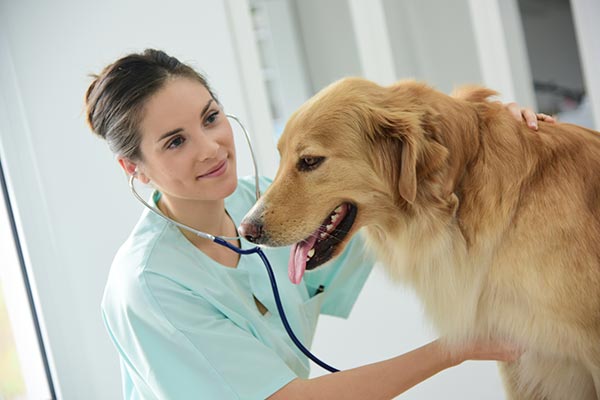Why Vet Checkups Are Important

Having a pet has likely provided lots of benefits to your family. They might be your snuggle buddy while watching late-night movies. Or they might join you on your morning run.
They are often our best friends, and they become a part of the family. As part of the family, maintaining their health is important. In fact, much like humans, pets require annual wellness checks.
Vet visits can be nerve-wracking for both pet and owner. Some pets are especially nervous about visiting the vet. However, annual checkups are recommended by the American Veterinary Medical Association. A wellness check is one of the key factors in keeping your pet healthy and happy for their entire life. Annual checkups can help prevent and detect diseases and conditions.
Screenings and what they prevent or detect
There are many screenings that your vet covers during an annual exam:
- Vaccinations: Much like humans, animals require vaccinations against a slew of parasites and diseases. Depending on your pet’s age and health, the required vaccinations can vary. Typically, most pets require some sort of annual vaccination.
- Dental care: The health of your pet’s teeth affects their overall health. During your annual visit, your vet will check their teeth to determine if they need a cleaning. Cleanings become increasingly important as your pet ages. Teeth cleanings can help prevent gingivitis and periodontal disease. The yearly exams can also help detect oral cancer.
- Skin exam: The main concern for your pet’s skin is parasites, such as fleas, ticks and mites. Your vet can recommend medication to help prevent or control these parasites. The skin exam can also reveal any allergies or skin infections.
- Eye exam: Unfortunately, your pets are prone to similar eye conditions as humans. Your vet can detect glaucoma, cataracts and dry eyes.
- Body exam: The vet will check your pet’s bones, glands and joints. These exams can help detect hip dysplasia, degenerative back disease, diabetes, thyroid disease and more.
- Internal systems: Through a series of bloodwork and physical exams, your pet’s heart, lungs, kidneys, liver and digestive system can be checked. These checkups help detect early signs of any internal system issues, such as kidney disease, Cushing syndrome or cancer.
A thorough annual exam is a great way to ensure your pet remains healthy all year round.
Potential risks
Even when your pet seems healthy, an annual exam might detect something that is undetectable to you. However, there are some indications that it’s time for an annual checkup:
- Teeth: If your pet isn’t eating or is losing teeth, they may be experiencing issues with their oral health.
- Joints and bones: If your pet seems less mobile or in pain when moving, they may have bone or joint problems.
- Glands: Hair loss or weight loss can be an indication of gland or endocrine problems.
- Skin: Patchy fur or a skin infection is a sign that there might be allergies or parasites.
- Internal systems: Weight loss, sluggishness or abnormal behavior could be an indicator of issues with the liver, heart or lungs.
Be on the lookout for any abnormal behaviors such as increased aggression, picky eating, excessive drinking, panting, coughing, trouble breathing, lethargy, anxiousness, hiding or whimpering. But before you jump to a diagnosis, consult with your vet.
Pets become a part of our family. As a family member, we want them to have the best health and live long lives. The best way to prevent health issues is to get annual checkups, feed them a healthy diet, and give them regular exercise. The cost and time of a vet visit are worth the extended life and health of your best friend.
If you need a veterinarian for your pet, connect with us on our website today.
